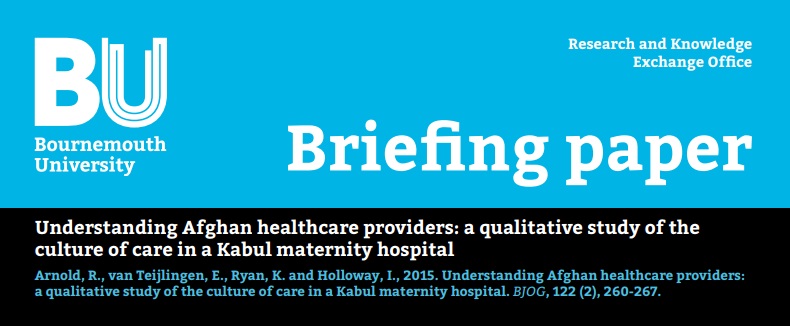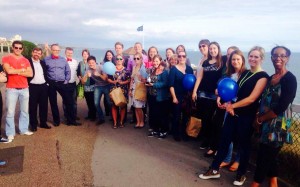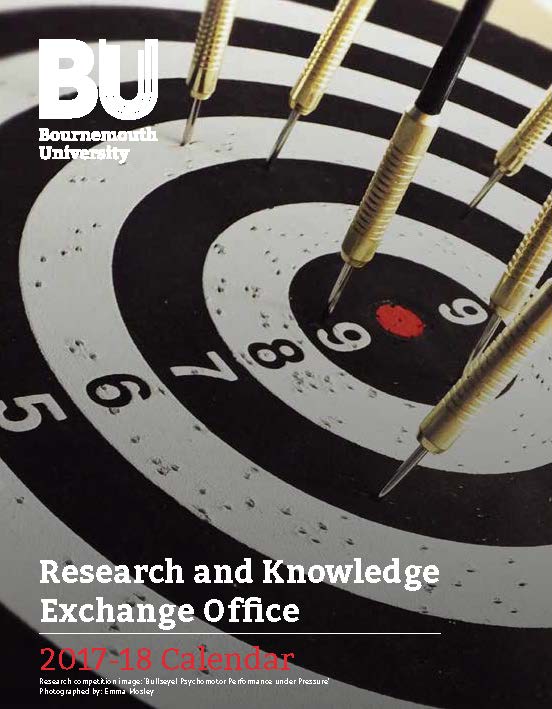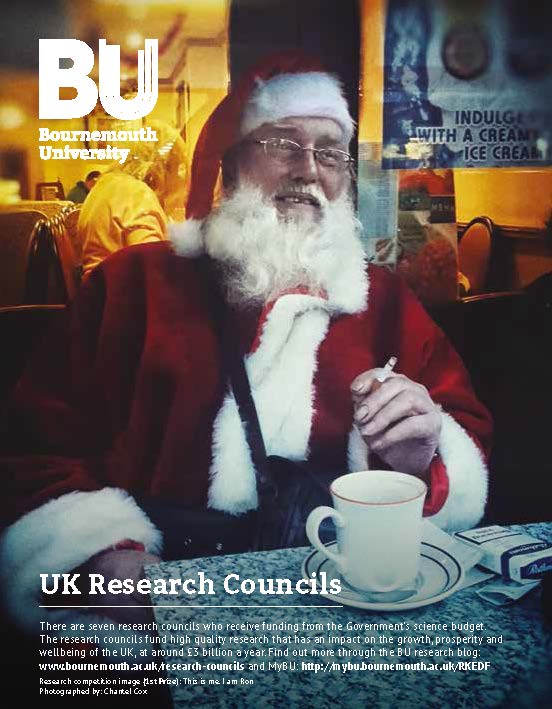NSS results
HEFCE published the NSS results last week. In their press release they highlight the changes to the survey and the fact that the responses are not comparable with previous years – there were 10 new questions and wording changes to 9 questions. The NUS boycott linked to the TEF affected 12 institutions who did not achieve the necessary response rate.
Jo Johnson had made an announcement a few weeks ago about student contracts as one way of addressing student concerns about quality and value for money – there has been a fair amount of comment and the latest from Jim Dickinson on Wonkhe suggests some practical action universities could take to improve their response to complaints.
Teaching Intensity
Teaching intensity hit the headlines in late July fuelled by the Fiscal Studies journal article on class size, the 2017 HEPI Student Academic Experience Survey, and the announcement that the TEF subject level pilots will contain a teaching intensity measure. The pilot TEF measure will collect data on class size and contact time and consider how these measures might be used to inform a subject-level assessment judgement.
A Times Higher article – Teaching intensity: the key to measuring student learning? – illustrates the diversity of approaches and opinion on class sizes. Applicant choice is a key factor and many also highlight that there is no interrelation between student experience of teaching intensity/quality and fees (yet).
A HEPI guest blog – Measuring teaching intensity: the authors respond to the critics – explains the limitations within HESA data and why the Dearing Report and Brown Review didn’t go far enough.
“We felt that there was a need to collect information than enabled more precise comparison of how teaching is delivered across institutions, accounting for the many ways in which teaching is undertaken. Our findings imply that some students receive much better value for money than others. For a market to function properly, participants must be able to compare what is offered by different providers. The enormous variation in teaching intensity found in our data strongly suggests that in the market for teaching price signals are weak. It was always anticipated the tuition fees would be variable. One of the ways in which it was expected that the fee would vary was by subject (Greeneway and Haines 2000). If the data we have collected had been publically available the uniform fee would not have been possible.”
“Unfortunately, in the absence of information about teaching intensity (as opposed to contact hours alone) school leavers have no way to choose between those universities offering more (or less) of the tuition service they are ultimately paying for. In turn, universities are not incentivised to provide more of the primary service (tuition) paid for by taxpayers and students.”
The authors call for universities to publish teaching intensity data in additional to contact hours in the belief it will create a more competitive environment and therefore drive up teaching quality.
Sarah Stevens, Head of Policy at the Russell Group, responded on Wonkhe disagreeing with the proposal to include teaching intensity in the TEF.
Widening Participation
POSTGRADUATE SUPPORT SCHEME – HEFCE published the 2015/16 postgraduate support scheme evaluation report. This was a one-off scheme designed to widen access to taught postgraduate students (within the first cohorts to pay higher fees) through a bursary of £10,000. This scheme has been superseded by the postgraduate loan scheme. The evaluation note:
- The bursary did have a modest impact of demand but criticises the scheme’s rushed design and implementation which meant only students already committed to PG study were likely to apply – it acted as an ‘enabler’ rather than a ‘persuader’
- Higher levels of students from certain underrepresented groups were recruited than in previous years. There was particular success in increasing students from Low Participation Neighbourhoods, NS-SEC groups 4 – 8, Black, Asian and Minority Ethnic groups, disabled students and ‘first generation’ students. The scheme which was designed to remove financial barriers to PG study may have a particular meaning for these groups of students; it will be interesting to cross-reference these groups’ take up of the PG loan scheme.
- The evaluation concluded that the scheme did not led to substantial change in policy or practice for most institutions and structured obligations (e.g. requirements set by OfS) is needed for genuine change.
RECENT PUBLICATIONS
A Wonkhe blog Universities’ shame – unpicking the black attainment gap discusses the attainment gap between black/white and Asian/white good degree classifications. While this isn’t new news and the gap is acknowledge by the sector Wonkhe suggest the OfS ought to penalise institutions for attainment gaps and states:
Ultimately, TEF has failed in its aim to take account of any significant differences in the quality of teaching and learning experienced by different student groups if it has awarded universities Gold ratings when there are significant racial attainment gaps. The blog sparked a volley of comments from the sector which can be viewed at the end of the article.
Les Ebdon blogs giving advice to the OfS: A real step change for fair access.
I always say that good progress is being made on fair access – that it’s a national success story. Well, I stand by that, but let’s be clear, it’s good progress made from a very low baseline, which means that the overall result is still quite low.
OFFA is publishing a summary briefing on the current situation in fair access – the gains made and the challenges that remain – and it makes sobering reading.
If the OfS is built with the right mission, values, staff and systems, it will be able to drive the transformational change that is needed…OFFA is a tiny organisation and, although we’ve punched a long way above our weight, our size has always limited what we’ve been able to do. The OfS will have much bigger resources – in data analysis, for example – that will enable it to take what we’ve done and do it even more and even better. That means focusing on outcomes, following evidence, and offering support and challenge in ways that respect the wide diversity of institutions.
The OfS must strive as hard as OFFA has striven to keep access and participation on the public agenda. These issues are now embedded in government policy and a key priority for Ministers, but nothing is ever permanent in politics
HEPI have published a collection of essays on widening participation and fair access. Suggestions include bolder contextualised admissions policies for highly-selective universities (with AAA+ offers typically being reduced to CCC), more support for people in care with the potential to benefit from higher education and new Personalised Learning Accounts to meet demand for more flexible lifelong learning.
The National Networks for Collaborative Outreach 2015/16 monitoring report has been published by HEFCE. This covers the final year of the NNCO scheme and reports 98% of academies, schools and colleges were covered by the scheme and ‘genuine innovation took place’.
The Sutton Trust have published their annual Aspirations Polling 2017. They survey asks young people about their aspirations and worries for higher education, and their attitude to tuition fees and student debt. The Sutton Trust report this year’s pool shows a falling trend in likelihood to attend university and an increase in financial concerns. Headlines:
- The proportion of young people who say they are likely to go into higher education as fallen to its lowest level since 2009.
- 51% intending to study at university worry about the cost of HE – this is an increase on previous year and is the highest level the Sutton Trust has ever captured through their polls.
- Young people low affluence households who intend to attend university is the lowest in seven years with the socioeconomic gap in likelihood between high and low affluence households at the highest level it has been.
- In expectations BAME young people (82%) are more likely than white (71%) to plan to attend HE.
- Of those not intending to apply to HE 64% cited a financial reason (this was 57% in 2013)
OFFA issued this press release and a quick facts briefing.
Parliamentary Question – MATURE STUDENTS
Q – Mr David Lammy: What plans she has to increase the number of individuals aged 24 and over in part-time and full-time education.
A – Joseph Johnson: The Government is committed to ensuring all individuals have the opportunity to make the most of their potential. The Industrial Strategy Green Paper, published in January, outlined some of the challenges that adults face when considering re-entering education. This year’s Budget therefore committed £40million to fund pilots to test ambitious, new approaches to remove these barriers.
We want to increase participation in higher education by older and part-time students, and we have taken action to support those who choose to study part-time. These measures include: From 2012, the offer of up-front fee loans for eligible part-time students, to level the playing field with undergraduate study. From academic year 2018/19, the introduction of undergraduate part-time maintenance loans, to bring greater parity of support between part-time and full-time. From 2015, the relaxation of Equivalent or Lower Qualification rules, so students who already hold an honours degree qualification and wish to study part-time on a second honours degree course in engineering, technology or computer science, have qualified for fee loans for their course. This is being extended for academic year 2017/18 to graduates starting a second part-time honours degree course in any STEM subject.
In addition, we are extending undergraduate maintenance loans to distance learners from academic year 2019/20, subject to the development of a robust control regime.
We are also removing barriers to accelerated courses. Evidence shows that accelerated courses appeal particularly to mature students who want to retrain and enter the workplace more quickly than a traditional course would permit. We have already made provisions in the Higher Education and Research Act 2017 to remove a key barrier to the growth of these courses, and will now consult on implementation and setting a new fee cap specifically for accelerated courses in secondary legislation.
The Office for Fair Access has also asked universities to consider the different barriers mature learners may face in accessing, succeeding in, and progressing from higher education, and to consider what more they can do to attract and support part-time learners across the whole student lifecycle as part of their Access Agreements.
Appointments
Alistair Jarvis has been appointed as Chief Executive of UUK replacing Nicola Dandridge who is now CEO of the Office for Students. Prior to appointment Alistair was the Deputy Chief Executive at UUK and a member of the Wonkhe Board. THE describe his background and reasons for appointment. Janet Beer, UUK president, said:
“The challenges and opportunities afforded by the current economic, social and political climate mean that UUK was seeking a chief executive with a strong track record in campaigning, political advocacy, and the ability to connect with a diverse range of stakeholders.”
Parliamentary Questions
FEES – VALUE FOR MONEY
Q – Lord Myners: Whether they intend to take action to limit university course fees which do not represent value for money for students; and if so, on what basis they intend to determine which courses provide value for money.
A – Baroness Sugg: The Government has introduced the Teaching Excellence Framework (TEF) assessment, to tackle concerns about value for money in Higher Education. Only providers who successfully achieve a high quality rating under the TEF will be permitted to maintain their fees in line with inflation.
The results of the TEF assessment gives students clear information about where teaching quality is best and where students have achieved the best outcomes. This will promote student choice and encourage a stronger focus on the quality of teaching, as higher education providers will need to ensure they are giving students, their parents and the taxpayer value for money.
Furthermore, the Office for Students, once established, has a general duty under section 2 of the Higher Education and Research Act 2017 to have regard to the need to promote value for money in the provision of Higher Education by English Higher Education providers.
Q – Alex Burghart: What estimate she has made of the cost of abolishing university tuition fees.
A – Joseph Johnson: The Institute for Fiscal Studies (IFS) has estimated that abolishing tuition fees would increase the fiscal deficit for the 2017/18 student cohort by around £11bn, with the long-term cost of student funding increasing by around £6.5bn.
The major reforms to English higher education in 2012 have significantly increased average per-student funding. Graduates do not start repaying loans until their annual incomes reach £21,000, and loans are written off after 30 years. By enabling English universities to charge current tuition fees, the Government no longer has to ration access to higher education via a cap on student numbers. This enables it to offer more places, including to young people from disadvantaged backgrounds, who are now going to university at a record rate – they are 43% more likely to go to university than they were in 2009 (LINK).
Graduates earn, on average, substantially more than people with A levels who did not go to university. Various pieces of research show that Higher Education graduates earn, on average, at least £100,000 more over their lifetimes than those without a degree but with 2 or more A-Levels. The most recent BIS commissioned research shows that, on average, a male graduate could expect to earn £170,000 more and a female graduate £250,000 more over their lifetimes, than someone without a degree but with 2 or more A-levels, net of tax and other costs (2012 prices). Abolishing tuition fees would be socially regressive: as well as unfairly burdening the general taxpayer, it would benefit mainly those students going on to well-paid jobs, who repay their loans in full.
CAPPING THE STUDENT LOAN
Q – Lord Myners: Whether they intend to place a cap on student loans, in order to prevent any increase in the total debt arising as a result of the interest paid being less than the interest accrued in any one year.
A – Baroness Sugg: The student funding system removes financial barriers for anyone hoping to study and is backed by the taxpayer. A key feature of the scheme is that outstanding debt – including any interest accrued that has not been repaid by the end of the loan term – is written off after 30 years. This means that borrowers are protected if their repayments are less than the interest accruing on their accounts.
Monthly student loan repayments are linked to income, not to interest rates or the amount borrowed. Borrowers earning less than the repayment threshold (£21,000) repay nothing at all.
Once borrowers leave study, those earning less than £21,000 are charged an interest rate of RPI only. Post-study interest rates are variable based on income, tapering up from RPI for those earning less than £21,000 to RPI+3% for borrowers earning £41,000 and above. The system of variable interest rates based on income makes the system more progressive, as higher earners contribute more to the sustainability of the higher education system.
We have a world class student finance system that is working well, and that has led to record numbers of disadvantaged students benefiting from higher education. As ever, we will keep the detailed features of the system under review to ensure it remains fair and effective.
TERTIARY EDUCATION
Q – Mr David Lammy: What assessment she has made of the implications on individual testing entitlement for her policy of the recommendations of Professor Alison Wolf’s report, Remaking Tertiary Education, published in November 2016. [5482]
A – Joseph Johnson: We welcome contributions to our thinking from experts on, and from within, the education sector. We are committed to delivering high performing further, technical and higher education, which represents good value for people throughout their lives.
For example, we have legislated to remove the barriers to the provision of two-year degrees. We are also introducing a new maintenance loan for part-time undergraduate study for academic year 2018/19 and intend to offer maintenance loans to support students on further education courses at Levels 4 and 5 in National Colleges and Institutes of Technology. This year’s Spring Budget committed £40million to fund pilots that will test ambitious, new approaches to removing barriers adults might face when considering re-entering education.
TEF
Q – Lord Jopling: How any higher education provider that does not obtain a Bronze status or higher in future Teaching Excellence Frameworks will be categorised.
A – Baroness Sugg: All providers who successfully meet the eligibility criteria, including the rigorous quality assessments by the Quality Assurance Agency for Higher Education, and which have sufficient metrics to be assessed, will achieve a Bronze award, or above, in the Teaching Excellence Framework (TEF). Those providers which have met the eligibility criteria but do not have sufficient metrics will instead receive a provisional award.
As noted during the Higher Education and Research Bill process some providers do not meet the eligibility requirements noted for TEF. Providers who do not meet the eligibility requirements, or who chose not to participate, will appear without a TEF award on Unistats and on the Universities and Colleges Admissions Service.
International students
In last week’s HE policy update we gave statistics on the value of transnational education. This week THE reports that Offshore students are ‘no substitute for UK-based learners’. THE explain that UK universities delivering education overseas accounts for less than 5% of the foreign student income. Dominic Scott, chief executive of the UK Council for International Student Affairs, stated that transnational education could never realistically replace lost income if the number of overseas students studying in the UK declined dramatically. “It has often been argued by government that the UK should, in the face of tough visa restrictions, seek to grow foreign student numbers overseas, largely as an alternative to UK recruitment.” However, HESA 2015/16 figures confirm there are only 701,000 offshore students compared to 450,000 international students studying in the UK. Furthermore, of the 701,000 45% are all on a low-fee accountancy distance learning course at one UK university.
HEFCE respond to last week’s controversial Sunday Times article Universities take foreign students ahead of British. Mario Ferelli, HEFCE’s Director of Analytical Services, explains what the UCAS data really shows and why the statistics the Sunday Times used weren’t appropriate for the young UK population.
JANE FORSTER | SARAH CARTER
Policy Advisor Policy & Public Affairs Officer
65111 65070
Follow: @PolicyBU on Twitter | policy@bournemouth.ac.uk
 The following international workshops are all being advertised on the British Council website under Researcher Links and the Newton Fund. For more information and eligibility criteria please follow the links below to the relevant website.
The following international workshops are all being advertised on the British Council website under Researcher Links and the Newton Fund. For more information and eligibility criteria please follow the links below to the relevant website. Our
Our 




 As part of the Writing Academy, a series of writing days have been organised to help support BU authors work on their
As part of the Writing Academy, a series of writing days have been organised to help support BU authors work on their  The British Academy have used e-GAP as their application submission system for a number of years. They have now changed to Flexi-Grant.
The British Academy have used e-GAP as their application submission system for a number of years. They have now changed to Flexi-Grant.

 Following consultation, the RKEO have developed the new programme of
Following consultation, the RKEO have developed the new programme of  What’s new for 2017/18
What’s new for 2017/18 Highlights
Highlights

 Good question and, although no firm decisions have yet been announced by HEFCE, it is looking increasingly likely that all academic staff at BU will be included in the REF 2021 submission, each with at least one output published between 2014-2020.
Good question and, although no firm decisions have yet been announced by HEFCE, it is looking increasingly likely that all academic staff at BU will be included in the REF 2021 submission, each with at least one output published between 2014-2020.



 The Health Foundation, an independent charity committed to bringing about better health and health care for people in the UK, has launched a new £1.5 million funding programme for innovative research on the economic and social value of health in the UK.
The Health Foundation, an independent charity committed to bringing about better health and health care for people in the UK, has launched a new £1.5 million funding programme for innovative research on the economic and social value of health in the UK.










 New Nepal scoping review on maternal & neonatal health
New Nepal scoping review on maternal & neonatal health Fourth INRC Symposium: From Clinical Applications to Neuro-Inspired Computation
Fourth INRC Symposium: From Clinical Applications to Neuro-Inspired Computation Writing policy briefs
Writing policy briefs Upholding Excellence: The Concordat to Support Research Integrity
Upholding Excellence: The Concordat to Support Research Integrity ECR Funding Open Call: Research Culture & Community Grant – Application Deadline Friday 12 December
ECR Funding Open Call: Research Culture & Community Grant – Application Deadline Friday 12 December MSCA Postdoctoral Fellowships 2025 Call
MSCA Postdoctoral Fellowships 2025 Call ERC Advanced Grant 2025 Webinar
ERC Advanced Grant 2025 Webinar Horizon Europe Work Programme 2025 Published
Horizon Europe Work Programme 2025 Published Horizon Europe 2025 Work Programme pre-Published
Horizon Europe 2025 Work Programme pre-Published Update on UKRO services
Update on UKRO services European research project exploring use of ‘virtual twins’ to better manage metabolic associated fatty liver disease
European research project exploring use of ‘virtual twins’ to better manage metabolic associated fatty liver disease